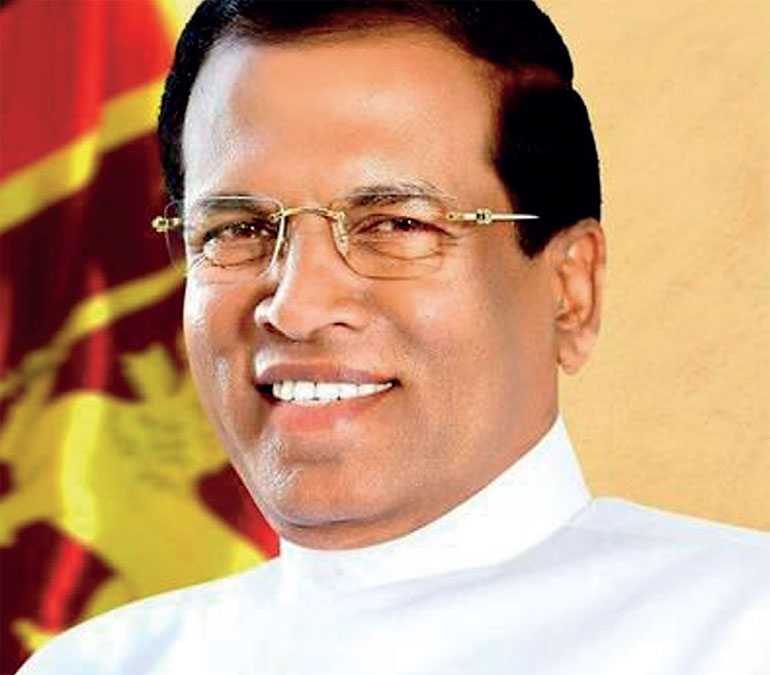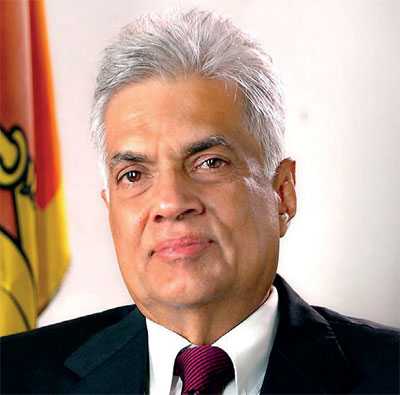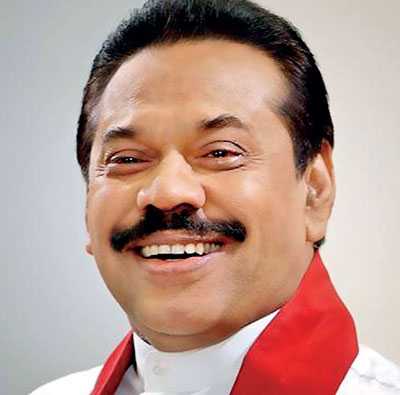Monday Feb 23, 2026
Monday Feb 23, 2026
Friday, 23 November 2018 00:00 - - {{hitsCtrl.values.hits}}

By Suri Ratnapala
1. Questions
This Opinion addresses the following questions presented by Upul Jayasuriya, Attorney-at-Law.
1. Is the purported dismissal Ranil Wickremesinghe from the office of Prime Minister by the President constitutionally valid?
2. Is the purported appointment of Mahinda Rajapaksa as Prime Minister constitutionally valid?
3. Is the Presidential proclamation of 9 November 2018 purporting to dissolve the Parliament constitutionally valid?
For the reasons herein stated, the answer to each question is negative.
2. Purported dismissal of the PM and the appointment of another person as PM
The President has no power to dismiss Wickremesinghe as Prime Minister. The argument that the power to appoint the PM carries an inherent power to remove the PM is incorrect. There is no such power under Westminster convention or the provisions of the Sri Lanka Constitution.
 |
UNP Leader Ranil Wickremesinghe |
 |
Former President Mahinda Rajapaksa |
This argument is founded on a misapprehension that the PM serves at the pleasure of the President. Even an employer at common law cannot lawfully dismiss an employee except in accordance with the terms of the contract and applicable legislation.
The Prime Minister’s tenure in office is defined by Art 46(2) which provides:
(2) The Prime Minister shall continue to hold office throughout the period during which the Cabinet of Ministers continues to function under the provisions of the Constitution unless he–
(a) resigns his office by a writing under his hand addressed to the President; or
(b) ceases to be a Member of Parliament.
Wickremesinghe has not resigned his office. He has not ceased to be a Member of Parliament. (As stated in this Opinion, the purported dissolution of Parliament is null and void.) He has not vacated his office by death. The question then is whether the Cabinet of Ministers continues or has ceased to function. This matter is governed by Art 48 (1) and (2) which provides:
48. (1) On the Prime Minister ceasing to hold office by death, resignation or otherwise, except during the period intervening between the dissolution of Parliament and the conclusion of the General Election, the Cabinet of Ministers shall, unless the President has in the exercise of his powers under Article 70, dissolved Parliament, stand dissolved …
(2) If Parliament rejects the Statement of Government Policy or the Appropriation Bill or passes a vote of no-confidence in the Government, the Cabinet of Ministers shall stand dissolved …
Wickremesinghe, to reiterate, has not ceased to hold office as PM by death or resignation or by ceasing to be a Member of Parliament. Therefore, the Cabinet of Ministers will stand dissolved during the life of the Parliament only if Parliament:
(a) rejects the Statement of Government Policy,
(b) rejects the Appropriation Bill, or
(c) passes a vote of no-confidence in the Government.
None of these events has occurred. Since no event that could constitutionally terminate the office of Wickremesinghe has occurred, he remains the Prime Minister and there is no vacancy of the office of Prime Minister.
It should be noted that even if there was a valid dissolution of the current Parliament, Wickremesinghe and the Cabinet would have remained as the Caretaker Government until the General Election by virtue of Art 47(1). Therefore, the President has no constitutional authority to appoint Rajapaksa as the Prime Minister.
3. The Sinhala text of the Constitution leads to the same result
The President has claimed the authority to dismiss Wickremesinghe from the office of PM based on the Sinhala text of Art 48(1) of the Constitution. This claim is unwarranted. The relevant Sinhala words are ‘dhoorayen ivath karanu labeemen ho illaa as veemen ho anyaakaarayakin’. These words in English translation means ‘removal from office, resignation or otherwise’.
The words ‘removal from office’ refers to the circumstance of being removed from office according to the Constitution. Under the Constitution the power of removing the PM is vested solely in Parliament which could do so only by rejecting the Statement of Government Policy or the Appropriation Bill or by passing a vote of no-confidence in the Government.
Therefore, the claimed power based on the Sinhala text of the Constitution has no merit.
4. The purported dissolution of the current Parliament
The President, by proclamation of 9 November 2018, has purported to dissolve the current Parliament. On 13 November 2018, the Supreme Court in response to several petitions, made interim orders suspending the effect of the Proclamation until 7 December 2018. The Court is scheduled to hear arguments on 4, 5 and 6 December.
The Proclamation has been made in clear and direct violation of Article 70(1) which provides as follows.
(1)The President may by Proclamation, summon, prorogue and dissolve Parliament:
Provided that the President shall not dissolve Parliament until the expiration of a period of not less than four years and six months from the date appointed for its first meeting, unless Parliament requests the President to do so by a resolution passed by not less than two-thirds of the whole number of Members (including those not present), voting in its favour.
Parliament has not made a request for its dissolution.
The President is the sole authority under the Constitution with power to ‘summon, prorogue and dissolve Parliament’. (Art 33(2)) However this power is not absolute but must be exercised according to the Constitution. Therefore, it must be exercised in accordance with Art 70(1) as amended by the Nineteenth Amendment of the Constitution. Two important presumptions of statutory interpretation are relevant to this question.
First is the presumption that the general provision does not detract from the specific provision. (Generalia specialibus non derogant.) In other words, the general provision is qualified by the special provision on the same subject. The proviso of Art 70(1) qualifies and limits the power granted by Art 33(2) and Art 70.
Second is the presumption that the later enactment prevails over the earlier contrary enactment. (Leges posteriores priores contrarias abrogant.) Art 70(1) as introduced by the Nineteenth Amendment is the later enactment that was clearly intended and has effect of qualifying and limiting the power of the President to dissolve Parliament.
5. The Attorney-General’s argument has no merit
The Attorney-General is reported to have made the following argument before the Supreme Court at the hearing on 13 November 2018.
‘No provision of the 19th Amendment was called for a referendum and pruning of President’s powers must have been done via referendum. The 19th Amendment did not require a referendum because executive power was intact as it stood before the referendum. Executive powers cannot be eroded. It can be approved by people exercising the franchise.
‘The Article 70(1) cannot be read in isolation when all provisions of the 19th Amendment taken together did not require a referendum because it did not erode the powers of the President’. (The Daily Mirror 13 November 2018)
This argument is without merit.
The Supreme Court considered and delivered its judgment on the Nineteenth Amendment Bill in S.D. Nos. 4-19/2015 heard on 1, 2 and 6 April 2015. Since the Bill was described in its Long Title as being for the amendment of provisions of the Constitution, the only question which the Supreme Court could determine was whether the Bill required approval by the People at a Referendum by virtue of the provisions of Article 83. (Art 120 proviso (a)) It determined that the Bill did not require referendum approval.
The petitioners in that proceeding made precisely the same argument that the Attorney-General now makes, namely that the President’s executive power could not be restricted without the approval of the People at a Referendum. The argument was considered and rejected by the Supreme Court.
The limitation of the President’s discretion by the establishment of the Constitutional Council was previously considered by the Supreme Court in its Judgement on the Seventeenth Amendment Bill. The Court held that the fetter on the Presidential discretion to make appointments to high offices was consistent with the sovereignty of the people established by Articles 3 and 4. In the Judgment on the Nineteenth Amendment Their Lordships emphasised the President’s responsibility to Parliament established by Art 42 and concluded:
Because the Constitution must be read as a whole, Article 4(b) must also be read in the light of Article 42. Clearly, the Constitution did not intend the President to function as an unfettered repository of executive power unconstrained by other organs of governance. (Emphasis added)
The power to dissolve Parliament derives from the old Royal prerogative which was restrained in the past only by convention. It is not in the nature of strict executive power. In the UK, Australia, New Zealand and Canada it is considered part of the reserve power of the monarch. The limitation of the Presidential power to dissolve Parliament and its location in Parliament itself enhances the sovereignty of the people.
6. Conclusion
For the reasons stated above:
(a) The purported dismissal of Wickremesinghe from the office of Prime Minister is unconstitutional.
(b) The purported appointment of Rajapaksa as Prime Minister is unconstitutional.
(c) The purported dissolution of the current Parliament by the Proclamation of 9 November 2018 is unconstitutional.
(The writer is an Attorney-at-Law and Emeritus Professor of Law, the University of Queensland.)